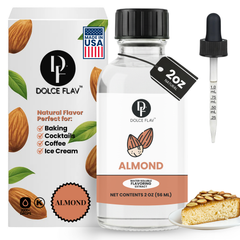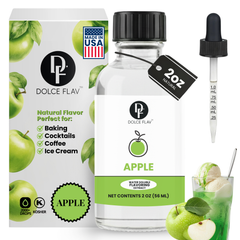
When it comes to adding flavor to our favorite recipes and products, we encounter two primary types of flavorings: water-soluble flavors and oil-soluble flavors. Each type offers unique characteristics and benefits, making them suitable for different applications. In this ultimate guide, we will delve into the distinctions between these flavoring options, exploring their composition, properties, applications, and considerations.
Understanding Water-Soluble Flavors: Composition and Properties
Water-soluble flavors are compounds that effectively disperse and blend with water-based substances. They consist of flavoring agents encapsulated in water-soluble carriers, allowing for easy incorporation into various aqueous mediums. These flavors are typically derived from natural or artificial sources and are carefully formulated to ensure optimal flavor dispersion. Their key properties include high solubility in water, rapid flavor release, and versatility in a wide range of applications.
Unveiling Oil-Soluble Flavors: Composition and Properties
Unlike their water-soluble counterparts, oil-soluble flavors are designed to be compatible with oil-based substances. These flavors utilize lipid-based carriers that effectively dissolve in fats, oils, or other hydrophobic media. The lipophilic nature of oil-soluble flavors allows for enhanced stability and prolonged flavor release, making them ideal for products that contain high-fat content. Their properties include excellent dispersion in oil, prolonged flavor intensity, and compatibility with lipid-based ingredients.
Applications of Water-Soluble Flavors
Water-soluble flavors find extensive use in a variety of applications. Their ability to blend seamlessly with water-based ingredients makes them a popular choice for beverages, including flavored waters, juices, sodas, and sports drinks. They are also widely utilized in bakery products, such as cakes, cookies, and pastries, where their quick flavor release ensures consistent taste throughout. Additionally, water-soluble flavors are commonly used in dairy products, confectioneries, and syrups, adding a burst of flavor to these delectable treats.
Applications of Oil-Soluble Flavors
Oil-soluble flavors are favored in applications that contain fatty or oil-based ingredients. These flavors excel in enhancing the taste of products such as chocolates, candies, cookies, and snack foods. Their compatibility with fats and oils ensures a harmonious flavor distribution within these indulgent treats. Furthermore, oil-soluble flavors are extensively used in the production of sauces, dressings, and savory snacks, where their longer-lasting flavor release and resistance to heat provide a consistent and robust taste experience.
Considerations and Limitations
While both water-soluble and oil-soluble flavors offer unique advantages, it's important to consider certain factors when choosing the most appropriate option for your specific application. Water-soluble flavors may have limitations in oil-based products, as they can result in flavor separation or compromised texture. Conversely, oil-soluble flavors may not disperse effectively in water-based products, leading to uneven flavor distribution. It's crucial to select the right type of flavor to ensure compatibility and desired results in your culinary creations.
Why Use Water-Based Food Flavoring:
By definition, water-based food flavoring can homogenize in water. Your ultimate objective should be to make an application that holds its flavor in order to properly deliver the strength of the flavor and scent.
To achieve this, the flavors you use must be able to intertwine with the other ingredients your application requires. Only then will your flavor come alive.
For example, in jams, a water-dissolvable flavoring will really supplement the natural flavor and improve each component of the formula.
What Applications are Water Soluble Flavors Most Commonly Used In?
Water-soluble food flavorings are perfect for:
- Beverage: tea, smoothies, spirits, beer, wine, sparkling water, wine and coffee.
- Baked goods such as cookies, brownies, cakes and to flavor frosting
- Condiments
- Candy centers
- Vinegar
- Jam and jellies
- Supplements
Do not use water soluble flavorings for chocolates, tinctures, salad dressings and other fat soluble products.

What are the characteristics of Oil Soluble Flavors?
Oil-soluble flavors, also known as heat-resistant flavors, are made of refined animal, vegetable oil, essential oil or mct oil. The characteristic of this kind of flavor is that is has a rich, calm and lasting aroma which in sensibly noticeably stronger and more intense than water soluble flavors.
Some of the most sought after flavors are oil-based flavorings for chocolate and oil-based candy flavoring. The reason for this is due to the fact that the oil soluble flavorings can withstand high heat and provide more of a consistency to a final product flavor.

Why Use Oil-Soluble Flavors:
Everything you mix with an oil-based flavoring must also be oil-soluble. Such as, in candies, oil-based candy flavoring will bring out that ambiance and strikingly accurate flavor profile you want from the flavor and help you create that sour or sweet or irresistible end product.
What Applications are Oil-Soluble Flavors Most Commonly Used In?
Oil-based flavorings are ideal for:
- Flavored Oils
- Baked Goods
- Hard Candies
- Gummies
- Ice Creams
- Salad Dressings
- Roasting Nuts
- Pastas
- Sauces

Differences & Similarities
So what is the easy way to know the flavors is Oil-soluble Flavor or Water-soluble Flavor? It is very easy. You just need look at the ingredients list of flavors. If the solvent is ethanol, it is water-soluble. If it is salad oil, it is oil-soluble. If it is propylene glycol, it is oil-water.
Both water-soluble and oil-soluble flavors can be used to flavor chocolate-candy centers
Best Selling Flavors: A Flavorful Journey
As you embark on your flavor exploration, it's worth noting that Dolcefoglia offers a wide range of exceptional flavorings, including their best-selling flavors. With their high-quality and delicious offerings, Dolcefoglia provides an excellent selection of flavor options for your culinary endeavors.
Take our flavor quiz today to find out what flavors would work for your applications!
Take a taste of our flavors, here.



1 comment
dear sir or madam
would you please let me know, how can I convert os flavor into the ws flavor?
thanks a lot.